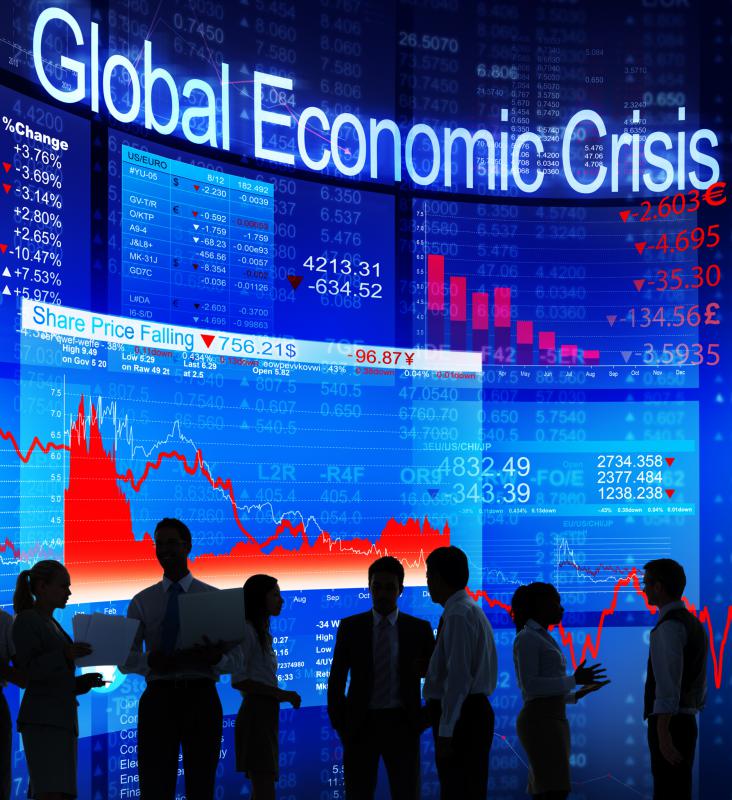At WiseGEEK, we're committed to delivering accurate, trustworthy information. Our expert-authored content is rigorously fact-checked and sourced from credible authorities. Discover how we uphold the highest standards in providing you with reliable knowledge.
What is the Financial System?
The financial system refers to a set of components and mechanisms, such as monetary policies, insurance, and banks, that allows economic transactions to occur. There are many types of financial systems that exist on different levels of society, ranging from those used to operate transactions within a company to those that facilitate international financial transactions. Without these systems, many normal activities would become difficult, if not impossible, such as trading and investing.
The International Monetary Fund (IMF) says, "Resilient, well-regulated financial systems are essential for economic and financial stability in a world of increased capital flows." Money, credit cards, and checks are examples of the types of components that may exist in a financial system. An accounting method, an auditing service, and financing procedures are examples of mechanisms that facilitate the operation of these systems. The absence of a financial system would produce drastic changes because people may not have access to credit, there would be no monetary products to exchange for goods, and there would be no policies regulating complex transactions.

Businesses generally exist to make money. A business, therefore, usually needs to have its own internal financial system. This can determine how transactions are approved, accounted for, and how plans are made for current assets. A business' system may mirror the functioning of a larger system but is much less complex.
A national financial system is one that will affect not only the individuals within a nation but also other nations. Since every country tends to interact with some other countries, it is necessary to have a functioning global financial system. This establishes a means for acts such as the conversion and transfer of money. It also provides a procedure for the application and granting of credit between foreign entities. For these types of international transactions to occur, there must be an established method that allows financial institutions to interact.

Although each nation generally has a financial system, they do not all operate the same. In some nations, for example, the use of credit cards is common. This part of the system allows people to make purchases without money if they agree to repay the funds in small amounts and to have interest added. In other less developed nations, credit cards may not be used at all.
Some financial systems are weak and inadequate. This can create many problems such as inflation and excessive debt. Systems such as these are also commonly susceptible to criminals with corrupt and fraudulent intentions. A major problem with substandard national financial systems is that they often create problems that have far-reaching effects, which can result in a global financial crisis such as that seen at the beginning of the 21st century.
AS FEATURED ON:
AS FEATURED ON:












Discussion Comments
Here, the mortgage lenders were making so much money from fees and selling pools of loans that they became much less concerned than they should have been about a borrower's ability to pay.
As a result, people were being approved for financing on homes worth well above what they could afford.
As more and more borrowers defaulted, the lenders were overwhelmed by the costs of foreclosing and litigating defaulted mortgages.
This brought the housing market to a halt, lenders stopped loaning money, and, as a result, the U.S. and global economies suffered.
Post your comments